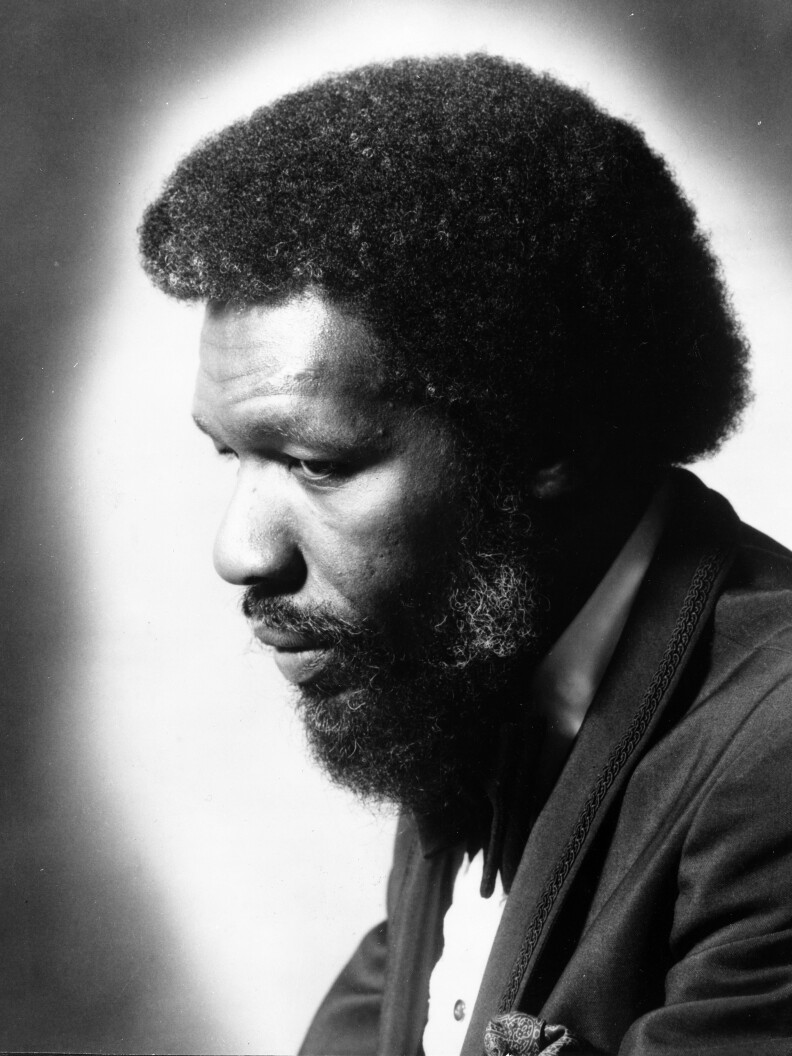With our free press under threat and federal funding for public media gone, your support matters more than ever. Help keep the LAist newsroom strong, become a monthly member or increase your support today.
Rediscovering the rigor of composers Julia Perry and Coleridge-Taylor Perkinson

You could call the new album American Counterpoints another encouraging result of the push in recent years, especially after the start of the Black Lives Matter movement, to better represent and reward the work of great Black composers in classical music — or you could just call it long overdue. Either way, it's good news when leading lights like Jessie Montgomery and Tyshawn Sorey are being heard more and more often in concert halls, while legacy figures such as Florence Price are being championed by the likes of the Philadelphia Orchestra. Now we may be poised for another exciting rediscovery, this time the music of Julia Perry and her younger contemporary Coleridge-Taylor Perkinson.

Perry was born in Lexington, Ky., in 1924, and launched her career in the early 1950s with the success of her choral work Stabat Mater. She won Guggenheim fellowships, studied with Nadia Boulanger in Paris and, in 1965, was the first Black woman to have a work broadcast by the New York Philharmonic. But shortly after, her health, finances and career spiraled downward. She was only 55 when she died in 1979. Much of her music slipped into obscurity, and today remains in a confused limbo between rights, publishers and those eager to perform it.
American Counterpoints, which puts her work in the hands of the New York-based Experiential Orchestra led by James Blachly, is anchored by Perry's darkly textured Violin Concerto, with a searching, urgent performance by soloist Curtis Stewart. Perry finished the piece in 1968, but it took more than four decades for composer Roger Zahab to reconstruct the definitive score used in this recording. The composer's musical brushstrokes still sound fresh, and often subtle. In the opening movement, scurrying figures in winds and strings dance in a kind of call and response, reminiscent of Bartók. As the third movement begins, the soloist glides serenely above a bleak landscape populated by a lonely, tolling piano.
The album also showcases Perry's more experimental side. In the Symphony in One Movement for Violas and Basses, the crepuscular music unexpectedly pauses for a full minute within a halo of droning strings. More conventional works, such as her Prelude for Piano and the choral piece Ye, Who Seek the Truth, have been newly arranged for string orchestra for this recording.
Like Perry's, the music of Coleridge-Taylor Perkinson has also been neglected, although he enjoyed a longer, more stable career. Born in Manhattan in 1932, and named after the late 19th century Afro-British composer Samuel Coleridge-Taylor, Perkinson was versatile. As a pianist, he toured with jazz drummer Max Roach. He arranged songs for Marvin Gaye and Harry Belafonte, composed for film, television and the concert hall, and co-founded the Symphony of the New World.

Reaching back to a pre-Civil War dance of the enslaved, Perkinson wrote Louisiana Blues Strut: A Cakewalk a few years before his death in 2004. Stewart's performance captures all the grit and exuberant syncopation, in contrast to the more polished performance recently released by Randall Goosby.
Perkinson was only 22 when he wrote his Sinfonietta No. 1, also included here. In its opening movement, he nearly out-Handels George Frideric Handel with elegant, multicolored braids of baroque counterpoint. But the soul of the piece lies in the majestic heartbreak of the slow, central Largo, which rivals the gravitas of Samuel Barber's Adagio for Strings.
American Counterpoints shines a much-deserved light on two important, and thankfully rediscovered, figures in American classical music. For Julia Perry, the timing couldn't be better — this month will bring the centenary of her birth, on March 25, as well as a four-day festival of her music in New York.
Copyright 2024 NPR. To see more, visit https://www.npr.org. 9(MDA1OTI3MjQ5MDEyODUwMTE2MzM1YzNmZA004))
At LAist, we believe in journalism without censorship and the right of a free press to speak truth to those in power. Our hard-hitting watchdog reporting on local government, climate, and the ongoing housing and homelessness crisis is trustworthy, independent and freely accessible to everyone thanks to the support of readers like you.
But the game has changed: Congress voted to eliminate funding for public media across the country. Here at LAist that means a loss of $1.7 million in our budget every year. We want to assure you that despite growing threats to free press and free speech, LAist will remain a voice you know and trust. Speaking frankly, the amount of reader support we receive will help determine how strong of a newsroom we are going forward to cover the important news in our community.
We’re asking you to stand up for independent reporting that will not be silenced. With more individuals like you supporting this public service, we can continue to provide essential coverage for Southern Californians that you can’t find anywhere else. Become a monthly member today to help sustain this mission.
Thank you for your generous support and belief in the value of independent news.

-
The rock legend joins LAist for a lookback on his career — and the next chapter of his music.
-
Yes, it's controversial, but let me explain.
-
What do stairs have to do with California’s housing crisis? More than you might think, says this Culver City councilmember.
-
Doctors say administrator directives allow immigration agents to interfere in medical decisions and compromise medical care.
-
The Palisades Fire erupted on Jan. 7 and went on to kill 12 people and destroy more than 6,800 homes and buildings.
-
People moving to Los Angeles are regularly baffled by the region’s refrigerator-less apartments. They’ll soon be a thing of the past.







